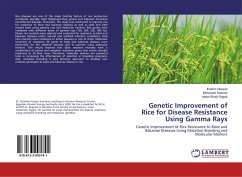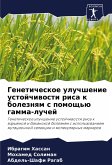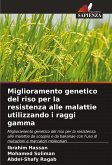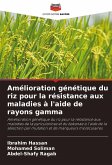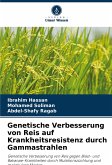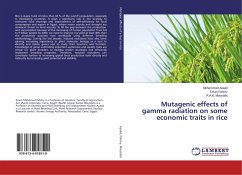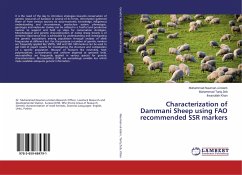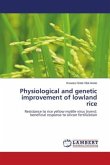Rice diseases are one of the major limiting factors of rice production worldwide specially, blast (Magnaporthae grisea) and bakanae (Fusarium moniliforme) diseases. Therefore, this study was conducted to improve rice for resistance to blast and bakanae diseases as well as yield and yield related traits using gamma rays and molecular markers. Rice grains were irradiated with different doses of gamma rays (150, 200, 250, 300 Gy). Eleven rice mutants were selected and evaluated for resistance to blast and bakanae diseases under natural and artificial infection conditions. Only nine mutants were resistance to either diseases or one of them. Molecular screening of resistance (R) genes to blast and bakanae diseases were performed for the selected mutants and its parents using molecular markers. The results showed that blast resistant mutants have a combination of partial and complete resistance genes that confer durable resistance to all blast races. Therefore, molecular markers are powerful tools in increasing the effectiveness of selection in breeding programs. Also, mutation breeding is very effective approach to develop new resistant genotypes to blast and bakanae disease in rice.
Bitte wählen Sie Ihr Anliegen aus.
Rechnungen
Retourenschein anfordern
Bestellstatus
Storno

